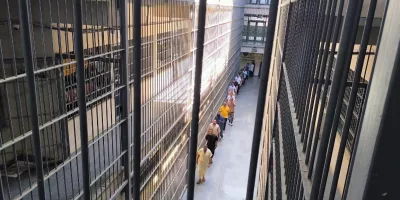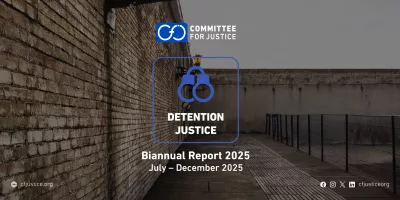The Committee for Justice (CFJ) stated that enforced disappearance constitutes a chain of interconnected violations whose impacts are particularly exacerbated for women and girls. This crime does not merely stop at the loss of liberty; rather, it extends to inflict deep gender-specific harms that affect the social and economic fabric of families, placing heavy burdens on women who find themselves confronting repression, marginalization, and a desperate search for truth and justice.
This was stated in a contribution submitted by the CFJ to the UN Working Group on Enforced or Involuntary Disappearance, as part of preparing the upcoming General Comment on women, girls, and cases of enforced disappearance. The submission was based on accurate documentation and intensive fieldwork conducted in Burkina Faso, Egypt, and Sudan. The CFJ emphasized the need for states to adopt a gender-sensitive approach in prevention, protection, and reparations, and to officially recognize the specific impacts of enforced disappearance on women and girls as independent rights holders—not merely as secondary victims.
In Burkina Faso, the submission revealed an increased risk faced by women and girls from the Fulani ethnic group, especially in communities affected by conflict or forced displacement. These women and girls face rising risks of enforced disappearance and sexual exploitation. Legal gaps and the absence of gender-sensitive protection mechanisms further increase their vulnerability.
In Egypt, the submission indicated that enforced disappearance has become an institutionalized phenomenon used as a tool of political repression. Women are targeted either because of their human rights or political activism, or due to familial ties to individuals perceived as opponents. The CFJ cited repeated cases, such as those of Shaimaa Taher Abdel-Hamid and Salma Abdel-Majid Abdullah, who have been subjected to multiple disappearances. Meanwhile, mothers and wives searching for their disappeared sons or husbands face continuous harassment, economic marginalization, and social stigma in their pursuit of justice, which further compounds their psychological and social suffering.
In Sudan, the CFJ revealed that the Rapid Support Forces (RSF) systematically use enforced disappearance as a method of repression in areas under their control. Human rights defenders and female relatives of the disappeared are specifically targeted in an attempt to silence them. The submission noted that women are subjected to intimidation, physical threats, and cyberattacks, amid a complete collapse of legal and institutional frameworks that could have provided protection or avenues for redress. As a result, many women are forced to resort to informal and highly risky search efforts, in the total absence of any national mechanism for documenting cases or offering support.
In conclusion, the CFJ called on the three countries to take immediate and effective steps to address this reality. This includes criminalizing enforced disappearance with explicit recognition of gender-related harms; establishing gender-sensitive investigation and support procedures; creating national registries of the disappeared and reparations programs that address the specific needs of women and girls; and protecting human rights defenders and relatives of the disappeared from any form of reprisal or intimidation.
The CFJ affirmed that women are not merely secondary victims in cases of enforced disappearance; they are primary rights holders entitled to the absolute right to truth, justice, and full and fair reparation. The committee urged the UN body responsible for enforced disappearance to place the gender dimension at the core of its upcoming General Comment, as a guiding framework for states toward comprehensive and effective responses that respect the rights of all victims without discrimination.






